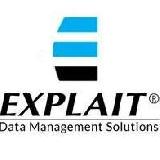What our clients say
-

Dziękuję wam za świetną pracę!
Korzystam z bezpłatnej wersji usługi DNS od około 4 lat i nie było żadnych przestojówIskren Slavov
Founder/Full Stack Developer @ Wish Development Ltd
-

"Fantastic customer service always! New customer with this company and I can't believe how well you are treated. Hard to find a great company like this one which provides such a great service and products."
Mel
Source:
-

"I have been using ClouDNS for over a year now, and I couldn't be more satisfied with their services. From the start, their platform has been user-friendly and intuitive, making the process of registering and managing domains straightforward and hassle-free."
Răzvan Birișan
Source:
-

"Even during the trail period and free service their customer service is top tier. I've used other premium services but very few of them can match the quality with ClouDNS. "
Shouvik Pal
Source:
-

"Working with the team at ClouDNS has been very supportive. My experience has been excellent. The team is attentive, knowledgeable and skilled when it comes to Cloud DNS, and I can recommend their professionalism."
J. May
Marketing Chief @ Amaze Communication
-

Dziękujemy za możliwość płacenia za usługi w Bitcoinach. Jest to bardzo ważne dla naszych klientów z Ukrainy szczególnie w przypadku, gdy system bankowy Ukrainy jest teraz zniszczony.
Mikhail Chutowski
-

"I haven't had any issue in 10 years and the support service is amazingly fast!"
JORGE B
Source:
-

"ClouDNS provides the best in class DNS services. Prior to ClouDNS we were hosting and managing our DNS servers which was not core to our business so when we compared alternatives ClouDNS was the right fit..."
James Aker
President at Explait @ EXPLAIT, LLC
-

"Knowledgeable and friendly Their tech support is always friendly and knowledgeable. I have never had any issue with downtime."
Boe VPN
Source:
-

"Outstanding Service. I'm using ClouDNS since 2015 for personal domains. In 2018 moved the domains of the company were i work and we use your services since then. Would never though to go back!!!..."
Stanislav Filavtev
-

ClouDNS jest niesamowity, używam go od jakiegoś czasu i działa po prostu świetnie. Chcę podziękować za fantastyczne rozwiązania dla usług DNS.
Helinton Dias
@ CloudExperts Consultoria
-

"Wasza obsługa klienta jest na naprawdę topowym poziomie, róbcie dalej dobrą robotę!"
Sami Sälö
Chairman of the Board @ Salskea Oy
-

Używam ClouDNS od 2014 roku i muszę przyznać, że są naprawdę niesamowite. Usługa, którą mi zaoferowali dla moich klientów, nie ma sobie równych. Oferują naprawdę dobre usługi, zwłaszcza subskrypcje DDoS
Daniel Ives
CEO @ Ives Network t/a Daniel Ives
-

"The best DNS hosting on the GeoDNS Start tariff significantly accelerated and increased the availability of the resource"
Molepool.
Source:
-

"I've been using ClouDNS for the last ten years and I've never had a single issue. I only log in to tweak DNS settings or renew my domain, and it’s always super easy."
Todor Tsankov
Source:
-

"I wrote to their live chat support about a phishing website that was active, they took it down in 5 minutes! They care about security and their network reputation."
Brad B.
Source:
-

"Prompt efficient service every time! Very responsive and reliable company! Thank you!!!"
Salomé Barao
Source:
-

Jako agencja internetowa oferujemy naszym klientom współdzielony hosting i chcemy im zagwarantować, że nawet jeśli nasz serwer doświadczy jakichkolwiek problemów, usługi odłączone będą nadal kontynuowane. Dlatego zwróciłem się do ClouDNS.
Grigor Yosifov
CEO @ Forci Web Consulting Ltd
-

Jestem bardzo zadowolony z waszej firmy. Jesteście naprawdę najlepszym dostawcą DNS w Internecie. Obsługa klienta, ceny i funkcje są świadczone na najwyższym poziomie.
Christopher Nofal
Manager @ DreamLab LLC
-

"Got frustrated with the lack of knowledgeable support at GoDaddy, searched for alternate DNS providers and found ClouDNS. Could. Not. Be. Happier..."
Phillip McMahon
-

"DNS Ninjas. Real People. Real Help. If you're looking for a DNS provider that actually talks to you like a human and not a ticket-bot, ClouDNS is the real deal."
Bandit
Source:
4.7 out of 5 stars on Trustpilot based on over 130 opinie
"Amazing support, great services, and best prices."
Dion Vogliqi
Source: